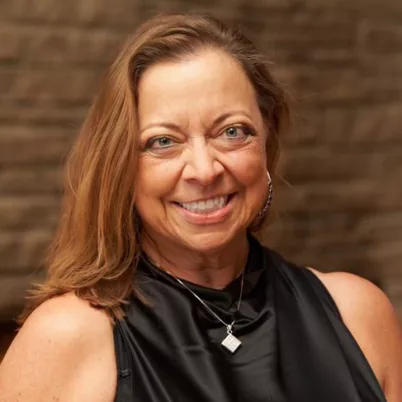Friedman-Rudzki Elected to Chair LAJHealth Board of Directors
Local Business Leader Judy Friedman-Rudzki Elected to Chair Los Angeles Jewish Health Board of Directors
Friedman-Rudzki brings passion and experience to leading nonprofit focused on senior care
(RESEDA, CA – July 5, 2024) Los Angeles Jewish Health has appointed long-time supporter Judy Friedman-Rudzki as chair of its board of directors. Friedman-Rudzki, a prominent Los Angeles-based director and senior treasury officer at Bank of America, will serve a two-year term beginning July 3rd.
In her new leadership role, Friedman-Rudzki—only the second woman to occupy the position—will collaborate with senior leaders of the organization as well as colleagues and the broader community to advance the mission of LAJH, one of the nation’s foremost leaders in the provision of care and living options for seniors.
“LAJH is a pillar of our community, helping elderly men and women age in comfort and with respect and dignity. I look forward to bringing my professional experience to bear in building on the organization’s incredible vision and ensuring it upholds its fiduciary responsibility to donors,” Friedman-Rudzki said.
As board chair, Friedman-Rudzki will spearhead and coordinate the efforts of diverse board professionals whose volunteer service helps strengthen LAJH and ensure its ongoing ability to provide high-quality care for seniors across the Los Angeles area. She will also work in tandem with LAJH executives to meet key strategic objectives such as expanding the organization’s capacity to serve the growing number of older adults through programs like the Brandman Centers for Senior Care PACE, a Program of All-Inclusive Care for the Elderly.
Friedman-Rudzki has served in a broad array of leadership capacities at LAJH dating back to 2009. Previously a member of the board’s Strategic Planning Committee, she has also chaired its Budget and Finance Committee and in-residence boards for both Grancell Village and Eisenberg Village campuses of LAJH. In addition, she has served on the board of the Annenberg School of Nursing.
“As CEO of LAJH, I am delighted to welcome Judy Friedman-Rudzki as our new board chair. Judy’s deep commitment to our mission and her exemplary leadership qualities will undoubtedly continue to steer us towards even greater achievements in senior care and community health. Together, we look forward to continuing our legacy of compassionate service and innovative care for all those we are privileged to serve,” said Dale Surowitz, LAJH’s president and chief executive officer.

###
About Los Angeles Jewish Health: Founded in 1912, Los Angeles Jewish Health (formerly Los Angeles Jewish Home) is the largest non-profit, single-source provider of comprehensive senior healthcare services in the Los Angeles area, serving nearly 4,000 people each year. At Los Angeles Jewish Health, thousands of seniors benefit from community-based and in-residence care and services. Programs include independent living; assisted living; senior behavioral health; short-term rehabilitation; skilled nursing; Brandman Centers for Senior Care (PACE); hospice and palliative care; and geriatric and memory care. Los Angeles Jewish Health is also home to the Annenberg School of Nursing